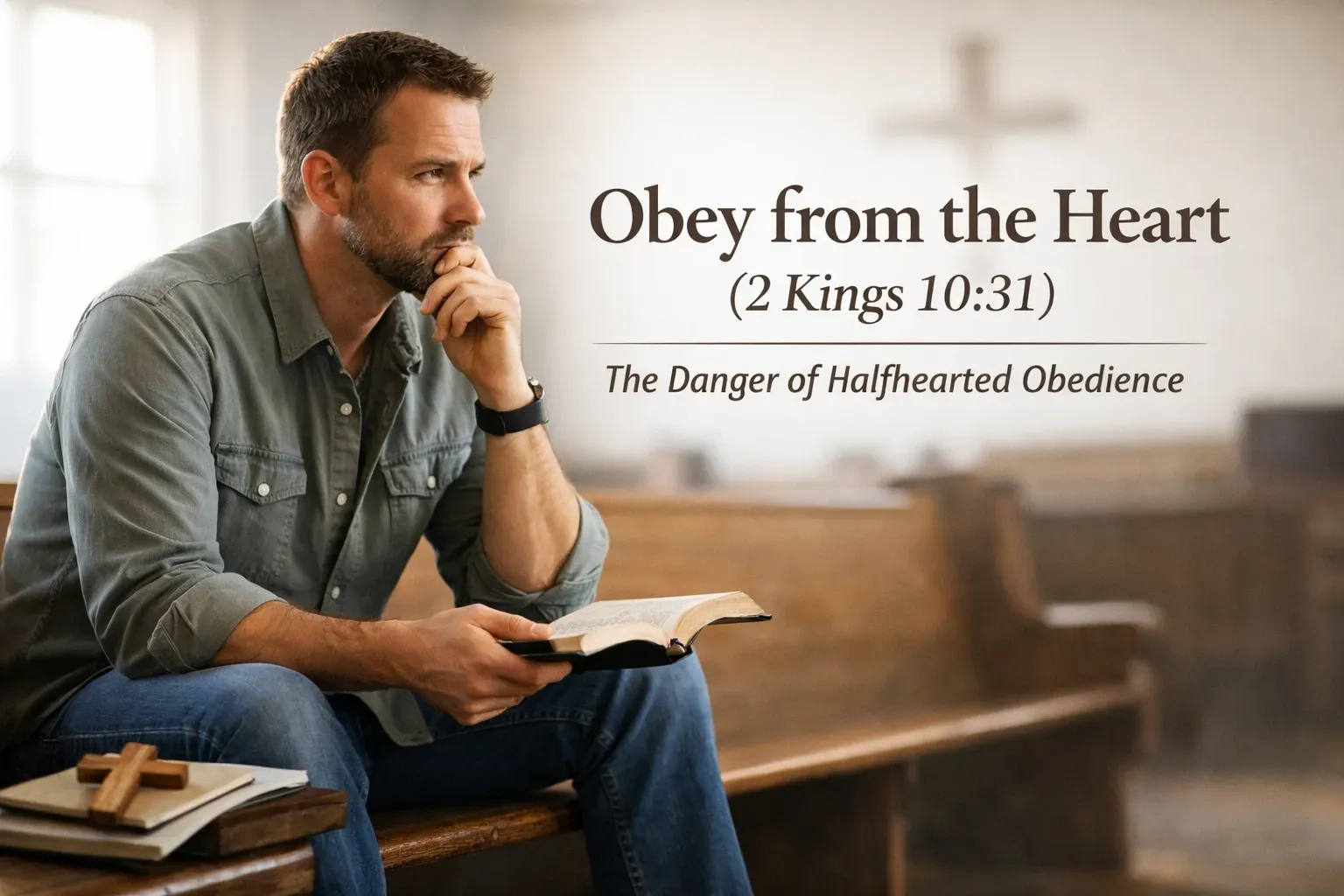Can a believer be Demon Possessed
Today's Gleanings

Merrill Frederick Unger (1909–1980) was an American Bible commentator, scholar, archaeologist, and theologian. He earned his A.B. and Ph.D. degrees at Johns Hopkins University, and his Th.M and Th.D degrees at Dallas Theological Seminary. He was a prolific writer who authored some 40 books. Unger was also a well known Biblical archaeologist and encyclopedist. Early in his career he was identified as a Baptist, but later was credentialed by the Independent Fundamentalist Churches of America (IFCA).
Education
For a time, he attended Southern Baptist Theological Seminary in Louisville, Kentucky, before transferring to the Evangelical Theological College, later Dallas Seminary. At Dallas he was a protege of Lewis Sperry Chafer, bible teacher and founding president of the Seminary. Unger's Th.M. thesis was published as The Baptizing Work of the Holy Spirit (1953), and his Th.D. dissertation was published as Biblical Demonology (1952). The evangelist Billy Graham considered this work an authority on the subject.
He later received a Ph.D. from Johns Hopkins under the Near Eastern historian and archaeologist, William F. Albright. Unger's Johns Hopkins dissertation was published as Israel and the Arameans of Damascus (1957).
**********************
Many Christians naively assume that the potential of satanic power in the life of the regenerated is practically nil. They live in a sort of fool’s paradise, imagining that becoming Christians magically shields them from satanic attack or demonic invasion.1
Other believers maintain a more realistic view. They are fully convinced that satanic powers may not only tempt and attack but that, if they are not repulsed, they may affect the saint’s life and do serious harm in his experience. They may influence him, delude him, despoil him. Always, however, they attack the saint from without, but never exercising total control over him. To such people the possibility of a born-again believer being invaded by one or more demons is preposterous and, in their view, unbiblical.2
A third class of believers holds to what seems to me the most realistic view. Grievously sinning saints (and such there are) may go beyond the old nature. In cases of serious, persistent, scandalous sin, such as gross immorality or participation in occultism or occult religionism, demons may exercise control over the believer for a time until his sin is confessed and forsaken and deliverance from the evil powers is gained.
1 Cf. John P. Newport, Demons, Demons, Demons, pp. 70–74; and Kurt Koch, Revival Fires in Canada, pp. 76–80.
2 Ibid., pp. 74–86; Lewis Sperry Chafer, Major Bible Times, rev. John F Walvoord, pp. 158–59.
Merrill Frederick Unger, What Demons Can Do to Saints (Chicago, IL: Moody Publishers, 1991), 55.
Demon influence is the action of demonic powers working to corrupt a person. It may be of various degrees of severity, depending on the resistance the believer offers the satanic onslaughts (cf. James 4:7). If he fails to “stand against the wiles of the devil” (Ephesians 6:11) and yields to this pressure, the enemy takes all the territory allowed him. Satanic forces operate upon this principle: “We go as far as we are permitted to go.”
When evil spiritual forces are allowed to operate unchecked upon the mind, the will, the emotions, and the bodily appetites, influence imperceptibly becomes greater and greater. Demonic pressure grows stronger and stronger. If demonic attack is not resisted, the result is demonic invasion of the personality. This condition eventuates in still more serious forms of enslavement.
Demon influence, at least in its milder forms, is extremely common among the regenerate, not to mention its all but universal prevalence among the unsaved (Ephesians 2:1–2; 2 Corinthians 4:3–4). In an age of increasing moral laxity and spiritual lawlessness, the more serious forms of demon influence are becoming more prevalent among Christian people.
Merrill Frederick Unger,
What Demons Can Do to Saints (Chicago, IL: Moody Publishers, 1991), 56.
**********************
It must be remembered that the obedient-to-the-Word, Spirit-filled believer is shielded from demon influence. He strengthens himself in his unchangeable position of victory in Christ. He enjoys the power and might made available to him in that position. He is able to conduct a successful warfare against his spiritual foes, so they are therefore unable to trick him (Ephesians 6:10–12).
Merrill Frederick Unger,
What Demons Can Do to Saints (Chicago, IL: Moody Publishers, 1991), 57.
**********************
A believer persistently yields to a besetting sin and gradually discovers that he is unable to confess it and turn away from it. But when the sin is clearly demonic, he also finds himself unwilling to do so.
A believer with a tendency toward lascivious thoughts yields to the temptation to indulge the old nature by reading pornographic literature. He soon finds his mind polluted by vile imaginations whenever he attempts to read the Bible or pray or perform any spiritual service for God. Strong demonic influence on his mind stifles every effort in Christian living and serving.
Merrill Frederick Unger,
What Demons Can Do to Saints (Chicago, IL: Moody Publishers, 1991), 57–58.
**********************
If he does invade, this is precisely why the believer may become enslaved and need to call on Christian warriors to come to his rescue in prayer battle if he is ever to be delivered from Satan’s snare into which he has been “taken captive by him at his will” (2 Timothy 2:26). He thus becomes the victim of an enslavement from which he is unable to free himself without help in prayer.
In such a case the normal struggle between the flesh and the Spirit (Galatians 5:17) ceases. The believer is invaded and overrun by the enemy, who, like any invading foe, does not permit the use of weapons of any sort by the citizens of the country overrun. As a result there is no struggle, only enforced submission and subservience.
The Holy Spirit indwelling the believer ungrieved by sin (Ephesians 4:30) and unquenched by disobedience (1 Thessalonians 5:19) most certainly precludes invasion by a demon spirit. But who dares assert that a demon spirit will not invade the life of a believer in which the Holy Spirit has been grieved by serious and persistent sin and quenched by flagrant disobedience?
The demon enters, it is true, as a squatter and not as an owner or a guest or as one who has a right there. He comes in as an intruder and as an invader and enemy. But come he does if the door is opened by serious and protracted sin.
Satan and his minions have no legal right to enter, for the Christian’s body belongs only to God both by creation and redemption (Psalm 100:3; 1 Corinthians 6:19–20). But as a squatter, defined as “one who settles on land without right or title or payment of rent,”5 a demon can come in and settle down for a time. He will leave only if he is forcibly ejected by faith and prayer on the part of Christian warriors who know their position and resources in Christ and use their prayer armor effectively.
The claim that the Holy Spirit could not dwell in the same body with an evil spirit overlooks an important theological observation. It might with equal cogency be asked how the Holy Spirit can dwell in our bodies, which are still possessed of the old nature and therefore subject to sin. Yet He does because of our redemption and the presence of the new nature.
In His atoning death, Christ secured a judicial sentence against “sin in the flesh” (Romans 5:10; 8:3) so that the infinite holiness of God is not in the least compromised by the Holy Spirit’s indwelling saved sinners. Similarly, the Spirit’s infinite holiness is not compromised by an invading demon spirit.
It must be stressed that demons cannot indwell a Christian in the same sense as the Holy Spirit. God’s Spirit enters a believer at salvation, permanently, never to leave (John 14:16). A demon, by contrast, enters as a squatter and an intruder and is subject to momentary eviction. A demon never rightfully or permanently indwells a saint, as the Holy Spirit does, and no demon can ever have any influence over any part of a Christian’s life that is yielded to the Holy Spirit.
5 Webster’s Seventh New Collegiate Dictionary, p. 849.
Merrill Frederick Unger,
What Demons Can Do to Saints (Chicago, IL: Moody Publishers, 1991), 59–61.
**********************
God is always nearer than you may imagine Him to be. God is so near that your thoughts are not as near as God; your breath is not as near as God; your very soul is not as near to you as God is. And yet because He is God, His uncreated Being is so far above us that no thought can conceive it nor words express it.
A. W. Tozer and David E. Fessenden,
The Attributes of God: Deeper into the Father’s Heart, vol. 2 (Camp Hill, PA: WingSpread, 2001–), 34.
**********************
God never thinks about the size of anything, because God contains everything. He never thinks about distance, because God is everywhere; He doesn’t have to go from one place to another, so distance doesn’t mean anything to Him.
A. W. Tozer and David E. Fessenden,
The Attributes of God: Deeper into the Father’s Heart, vol. 2 (Camp Hill, PA: WingSpread, 2001–), 35.
**********************
Non-Christians relate especially well to pastors who effectively use illustrations. Unbelievers do not understand the Bible, but they do understand life. A pastor who uses illustrations effectively tells the non-Christian that he understands not only the Scriptures, but life as well.
R. Larry Moyer, Show Me How to Preach Evangelistic Sermons, Show Me How Series (Grand Rapids, MI: Kregel Academic & Professional, 2012), 93.











